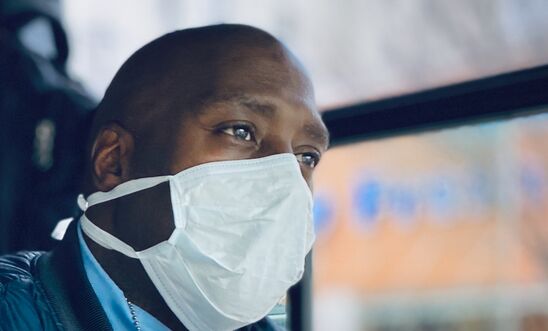
The Government must address fear and mistrust around vaccination

By Steve Valdez-Symonds, Programme Director - Refugee and Migrant Rights
Vaccination and immigration status
On Monday, it was widely reported that the Government wanted everyone that's eligible, to register with a GP for a coronavirus vaccination – whatever their immigration status.
Treatment for COVID-19 has been free-of-charge to everyone in the UK for over a year – except for Northern Ireland where the necessary regulations took effect on 7 March 2020.
What Ministers are now saying is that not only is the vaccination free, but that nobody should be afraid that getting vaccinated will lead to them being detained or expelled from the country.
Ensuring people feel safe
The most pressing question is how to ensure everyone is and feels safe to get vaccinated. This ought to be straightforward, but a history of using healthcare information to pursue immigration policy, means it isn't.
If the Government is serious about winning people's trust, it must do a lot more to ensure and reassure people that they can get vaccinated without fear of any immigration consequence.
Why are people afraid to seek healthcare?
Over many years – particularly the last decade – access to healthcare has been made a tool of immigration policy. But how?
Some healthcare provided to people who are either visitors (people on holiday or visiting family), or in the UK without permission, is charged. The current charging regime dates back to 1992.
This regime has changed and expanded dramatically since then. Primary care – including registration with a GP – continues to be free. Treatment for certain communicable diseases also remains free. But a lot of other treatment incurs charges – even if it's needed urgently for life-threatening conditions.
If healthcare is urgent and necessary, it must be provided. Any charge comes later. Still, for people with very little money, a large bill for healthcare can be frightening.
What's even more frightening is that, having an outstanding NHS debt is used by the Home Office as a reason to refuse an immigration application.
Incurring a charge can, therefore, undermine someone's efforts to regularise their immigration status – even if they otherwise satisfy the rules to be granted permission to stay.
It is not only charging that deters people from seeking healthcare. For many years, Home Office practice has been to receive information from healthcare providers and use it to trace people they think are in the UK without permission. They can then be detained and expelled from the country.
People are, therefore, afraid to seek healthcare – even when they urgently need it or when it may be harmful to their family or public health if they do not receive it.
Misinformation around immigration and healthcare
The clear message that has been delivered to many people living in the UK is that if there are any questions around your immigration status, it may be unsafe to seek treatment for injury, illness or pregnancy.
A further and false message has also been delivered to some healthcare providers. Some GP surgeries, for example, wrongly refuse to register people even though primary healthcare is free to all, and immigration status is not a requirement for registration.
Overcoming historical mistrust and fear
The Government is right to prioritise access to the vaccine over enforcement of its immigration policies.
This is good for everyone because the more people that are vaccinated the higher the chances of controlling the virus – including preventing further mutations that may prove vaccine-resistant.
So how can Government overcome fears and misunderstandings caused by years of prioritising immigration policy over everyone’s health?
An important part of the answer would be to send a clear message to the public that healthcare will no longer be used in this way; and a commitment to make this change.
A lot more needs to be be done to ensure GP surgeries and others don’t turn people away because of their immigration status; and to ensure that people know and trust they can safely register with a GP to receive the vaccine.
The media coverage at the start of this week was useful. But Government needs to be far more vocal about its message – in official guidance to healthcare providers, immigration officials and others; and in public pronouncements such as in Parliament and at coronavirus briefings.
Still, it is unlikely – given how long it has pursued its immigration enforcement objectives through the healthcare system – that Government can do all this work by itself.
It urgently needs to engage with communities and community leaders who have people’s trust to learn how to get its new message out and ensure it is effective.
There is also a wider lesson here
The focus right now must be on ensuring that everyone truly can and does safely get vaccinated.
But there is a wider lesson that needs to be learned. Making institutions and systems the servants of immigration policy can and does undermine the public services they are meant to deliver.
Just as it is harmful that some people are afraid to get vaccinated, so is it harmful that some people are, for example, afraid to contact social services, the police or providers of other healthcare.